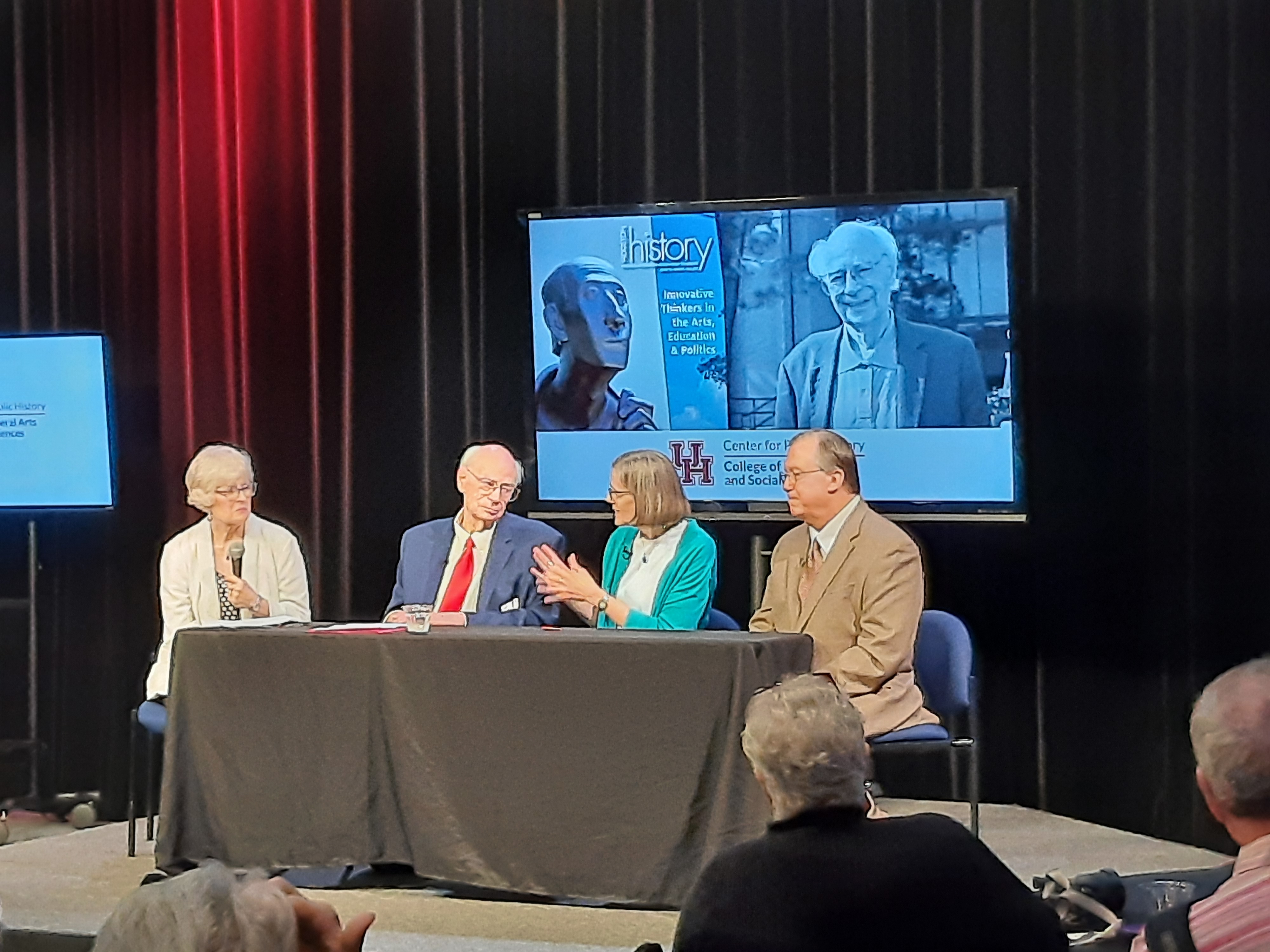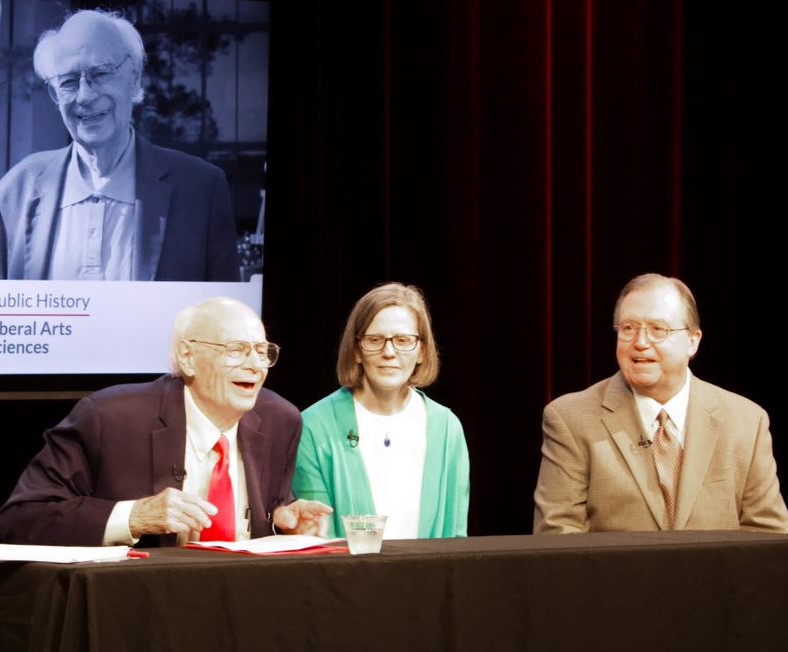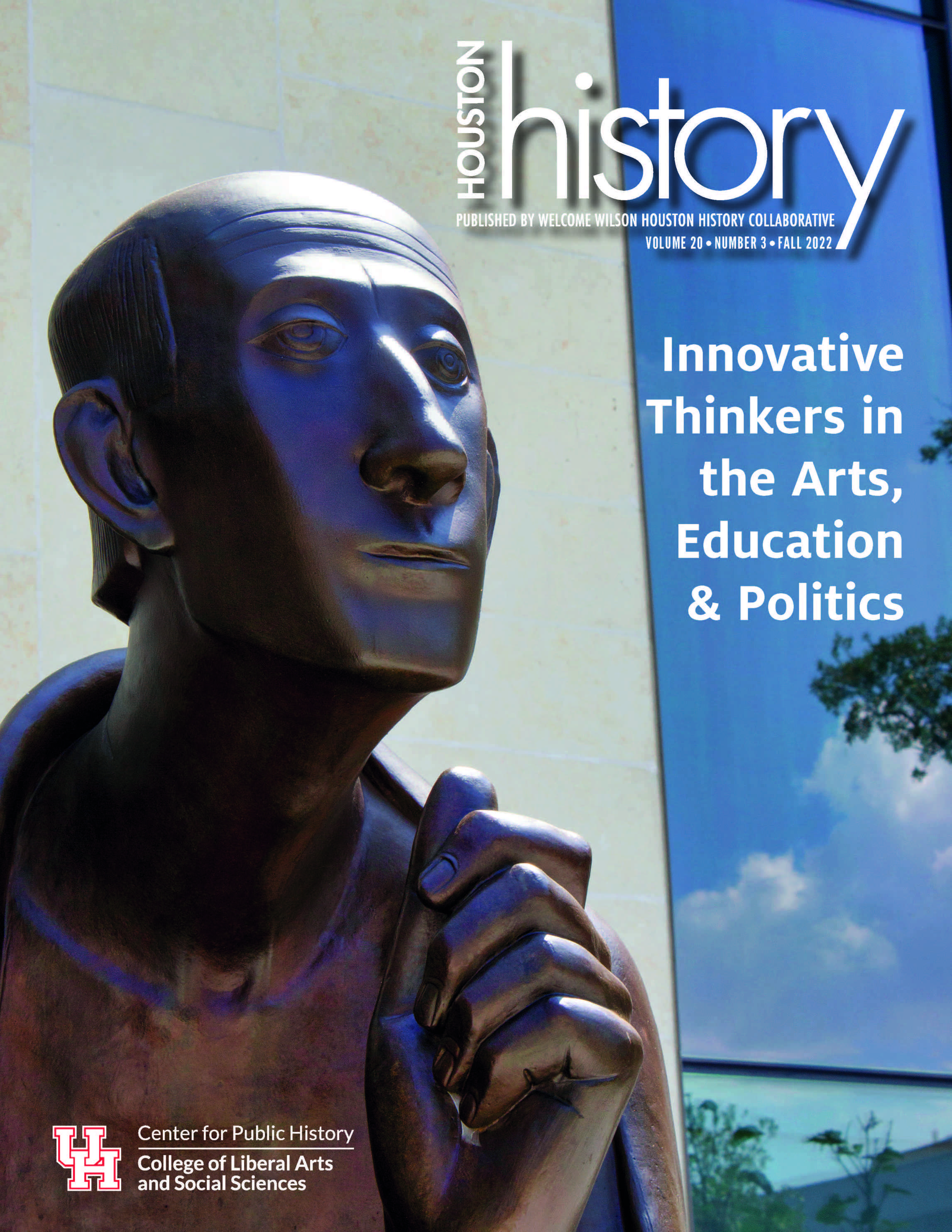
At the end of March, Houston History Magazine celebrated the release of its latest issue: Innovative Thinkers in the Arts, Education & Politics. This new release is related to the ongoing project, 100 Years of Stories: Documenting a Century at the University of Houston, and the new issue features stories of innovative thinkers in campus history. To celebrate the release, three panel members along with Debbie Harwell, Editor of Houston History, discussed their various contributions to innovation, arts, education, and politics.
The event was hosted at Houston Public Media (HPM), and the panel discussion centered around HPM's radio program Engines of Our Ingenuity. Panelists included John Lienhard, creator of the Engines program, UH history professor and contributor Cathy Patterson, and former producer Paul Pendergraft.
Lienhard began by explaining the beginnings of Engines as a radio segment that began on January 4, 1988. It started with an idea to use short bits of history and engineering feats in a radio program to capture public interest and encourage them to study at the University of Houston. To this day, the program still maintains its original goal to use history to catch the public’s interest in STEM subjects and creative areas of work.
While Engines features a variety of histories about various technical achievements, a recurring topic is the ingenuity of flight. While admitting that he had no favorite episodes, Lienhard spoke with a special fondness of those episodes about flying: “Our fascination with flight - that goes back to Daedalus and Icarus and back beyond even that. Why just birds and not us? It seems unjust.”

Cathy Patterson reflected on one of her episode contributions, No. 2846 Coffee Houses. With coffee houses spanning back a thousand years to Constantinople, Dr. Patterson pointed how much of that long history is marked by controversy. In seventeenth-century England, people both admired the drink as a healthy alternative to beer, but also feared that coffee was too foreign and strange, perhaps contributing to impotence in English men. The English monarchy also grew concerned that coffee houses were becoming dens of sedition and uncensored information sharing.
Pendergraft believed that episode No. 1928, Malt Balls or M&Ms, was particularly representative of the engaging quality so many Engines episodes possess. In that particular episode, the topic was the innovative shape of M&Ms. Unlike spheres, the unique, flat surface of the M&Ms allows for more candy to fit in packaging, while candies such as malt balls are limited in their packing capabilities simply because of their round shape.
All three panelists agreed that one important rule of Engines is that whoever researched and wrote the script must be the one to read it during the episode as they are the most invested in the subject matter. With the extensive research put into every episode, information is provided with the posting of every episode and viewers are encouraged to interact with the episodes. This completes the original goal Engines set out to accomplish of using history to catch the public’s interest in the ingenuity of our world.


Listen to episodes of Engines of Our Ingenuity here.
![]()
To become a subscriber or to purchase back issues of Houston History Magazine, click here!